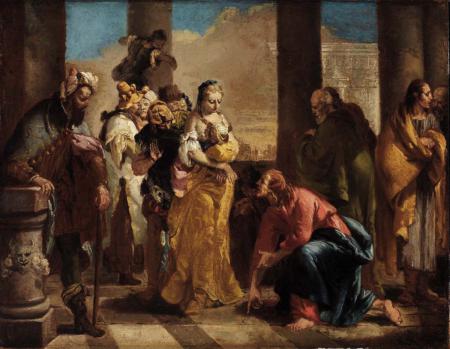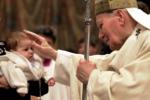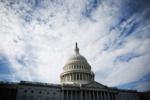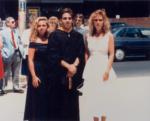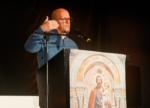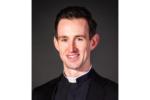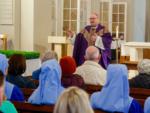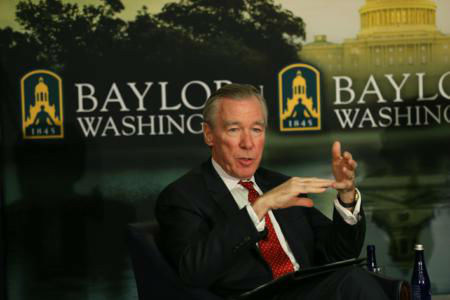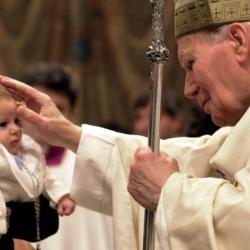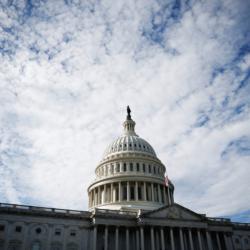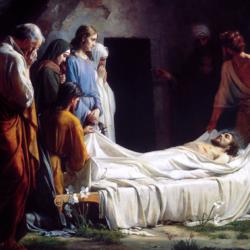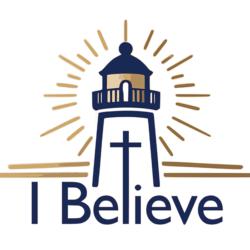Faith-based universities aim to relay values, not just educate students
WASHINGTON (CNS) -- Faith-based institutions of higher learning not only provide a solid academic education, but offer students moral values they can use as they make their way in the world, the president of The Catholic University of America said Feb. 4.
"It is not just about imparting education and passing exams. We want to raise up free and autonomous individuals with more than just knowledge and skills," John Garvey said. "We are forming students in wisdom and virtue."
Garvey joined Richard Joel, president of Jewish-run Yeshiva University in New York City, and Kenneth Starr, president and chancellor of Baptist-run Baylor University in Waco, Texas, for a discussion on "The State of Higher Education and the Calling of Faith-based Universities."
The discussion at the National Press Club in Washington was part of Baylor's "On Topic" series, which organizers say is designed to present "compelling discussions about critical issues facing the United States and the world."
Garvey said that faith-based universities and colleges help students recognize "not just their own values, but there are values that people share."
"We help students look at life's big questions and say, 'Perhaps these (values taught at religious institutions) are some of the answers you can look at,'" Garvey added. "We help our students advance in wisdom and virtue, and we give them the ethical foundations to make their judgments."
Joel said his university stresses that "education is meant to ennoble and enable."
He added that while higher education must prepare students "to compete in a global economy," there must be an emphasis on "the rules of engagement."
"We must ask the question, 'What do our children deserve?'" Joel said. "And we know they (students) must be prepared to make a good living and also be prepared to live a good life."
Starr said he wanted to hold the conversation because "education is more than attending classes and doing lab work."
"It's all about the students ... without the students, a university is just a research center," he added.
Speaking to the criticism by some that faith-based institutions inhibit academic freedom, Garvey noted that the theory of an expanding universe -- commonly called "the Big Bang Theory" -- was developed by Msgr. Georges Lemaitre, a Belgian priest, astronomer and physic professor, and that the science of modern genetics was established by Gregor Mendel, a German Augustinian friar.
"The notion that faith impedes inquiry or intellectual pursuit is hard to grasp," Garvey said. "It is a great thing for the intellectual life of America that we have our (religious) institutions of higher learning."
He added that through his own experience in both public and faith-based higher education, he found more academic freedom in religious higher education than in secular institutions.
"There were limits (in public education) I faced in expressing my enthusiasm for my Catholic faith," he noted.
Joel added his university also encourages students to "invest in ideas, grow and explore thoughts."
"We encourage the students to explore everything, but to see that ideas are not the end," he said. "We have an ethos -- values -- and we have confidence that our ideals can confront ideas and hopefully shape them."
Pointing to examples where civil liberties groups have protested religious figures offering an invocation at public institutions; graduation exercises, Garvey noted that "the argument of academic freedom is sometime disingenuous.
Speaking to the redefinition of marriage, forcing religious institutions to offer birth control and abortifacients to its employees and cases where the National Labor Relations Board have become involved in faculty issues at religious colleges, Garvey warned against an "indifference to the autonomy of religious institutions of higher learning."
Joel said that the values faith brings to education help students recognize "the worth of the human -- are we simply the highest animal in the food chain, or are we noble? We teach our students to be noble, to be more than just someone who gets good grades, gets a good job and goes shopping."
"We give our students a mandate to matter in the world and to reach out to others," he said.
Garvey agreed that attending a faith-based institution of higher learning forms a well-rounded student that goes beyond academics or taking classes on-line
"The aspect of forming a community of students is the strongest argument against online education," he said. "Forming students in wisdom and virtue is not something you do online."
- - -
Szczepanowski is a staff writer at the Catholic Standard, newspaper of the Washington Archdiocese.
